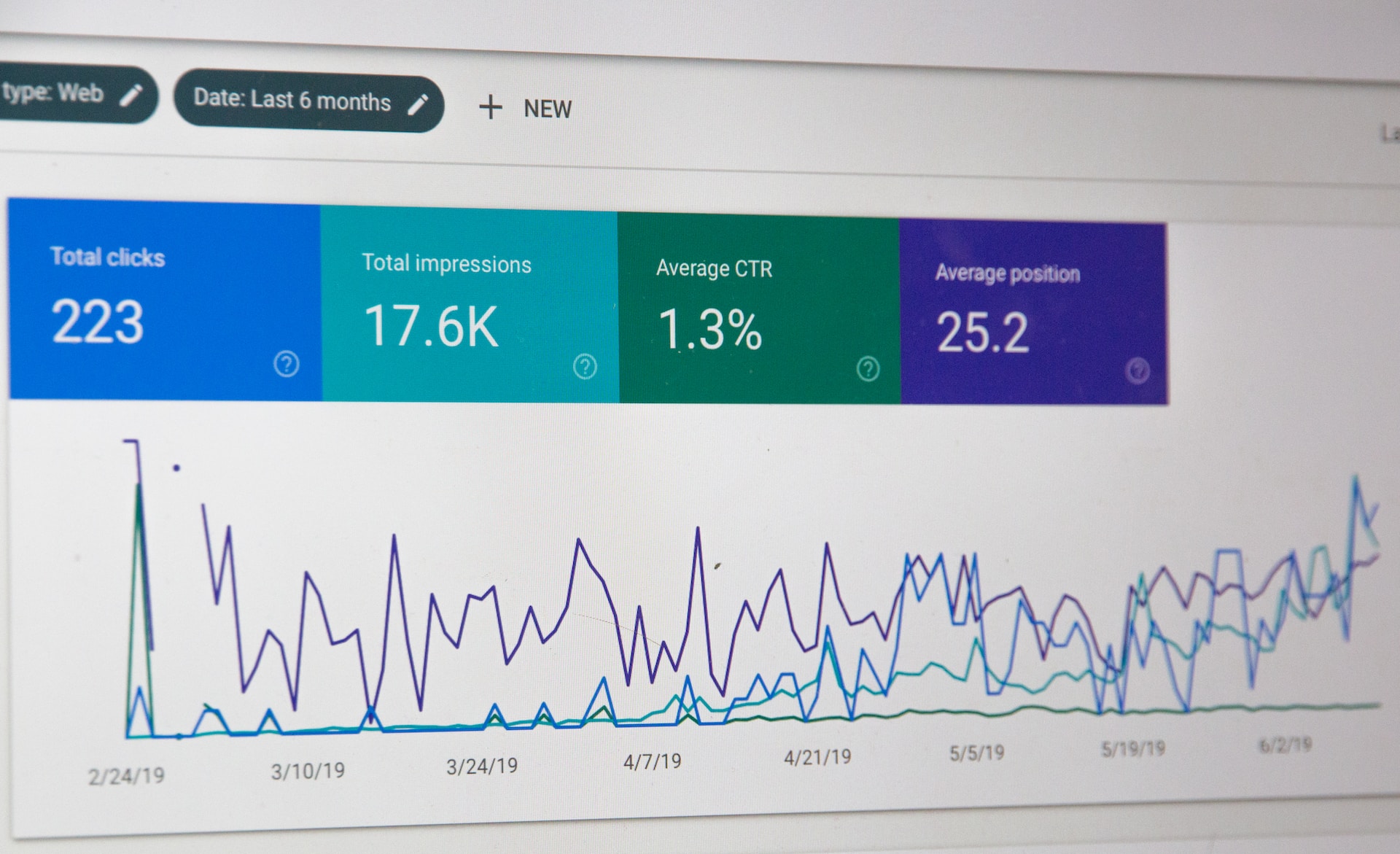
The evolution of consumer expectations, coupled with the proliferation of technology and abundant data, underscores the indispensability of implementing personalization in your marketing strategy. As generic marketing messages fall short, businesses must recognize that personalization is not merely a nice touch but a necessary component in today's digital landscape. Failure to personalize marketing efforts poses the risk of losing customers to competitors who understand the value of catering to individual needs.
What Is Personalized Marketing?
Marketing personalization is a strategic approach that leverages data to target and retarget leads with a brand message tailored to specific customers' interests, demographics, and purchasing behavior.
A personalized marketing strategy aims to make customers feel as though the brand message was crafted exclusively for them, often referred to as one-to-one or individual marketing.
Prominent companies such as Netflix, Amazon, and YouTube employ personalization strategically by utilizing algorithms to automate suggestions for products, shows, and videos based on individual user data. These recommendations consider a user's search history, purchases, and viewing habits, as well as the preferences of other users with similar tastes.
It's important to note that personalization extends beyond digital channels, and its benefits go beyond enhancing customer engagement. Establishments like hotels, cafes, or salons can encourage customer loyalty by delivering a targeted, personalized user experience. When customers feel special, they are more likely to revisit their favorite places and demonstrate loyalty to brands that prioritize personalization.
The Benefits Of Personalized Marketing
Personalized marketing offers numerous advantages for both businesses and consumers when implemented effectively. The following benefits are realized through successful strategies:
- Enhanced Customer Experience:Customers are more willing to share personal information with their favorite brands when they receive value in return. Whether through form submissions, whitepaper downloads, or survey participation for discounts, consumers expect brands to safeguard sensitive information and provide personalized experiences upon their return.
- Revenue Growth:Identifying and responding to each customer's preferred channel allows companies to increase their return on investment (ROI). Leveraging automation technology enables marketers to pinpoint the channels customers engage with and seamlessly follow up across multiple channels as part of a high-value omnichannel marketing strategy.
- Boosted Brand Loyalty:Consumers sharing information and data anticipate being treated as unique individuals with specific preferences. Businesses investing time and resources in successful personalized marketing strategies gain a competitive edge in both brand loyalty and customer satisfaction.
- Consistency Across Channels:With consumers interacting across various channels such as email, social media, and mobile platforms, maintaining consistency is crucial. Brands need to ensure that the in-store experience aligns with the app interface, which, in turn, matches email messaging. Consistency across these channels enhances the overall customer experience and reinforces brand identity.
Creating An Effective Personalized Marketing Plan
Fortunately, the team has proactively addressed the situation and identified five effective methods for marketers to implement a successful personalized marketing strategy within their organizations.
Ensure Proper Technology Implementation
Prior to embarking on any project, it is crucial to equip oneself with the appropriate tools, and personalized marketing is no exception. Marketers must ensure that their existing marketing technology platform is adept at managing the data, segmentation, and automation essential for effective personalized campaigns.
The correct technology can streamline operations by automating laborious tasks and analyzing extensive data sets. Examples of invaluable personalization technology encompass:
- Contentpersonalization.
- Recommendations.
- Marketing automation.
- Data collection.
Collect As Much Customer Data As You Can
By leveraging advanced technology, marketers can gather customer data at every step of the buying journey. Understanding a customer's specific searches, frequent clicks, and preferences empowers marketers to tailor content, offers, and suggestions precisely.
Metrics like email opens, link clicks, shopping behavior, and purchase history are essential for this data collection. The more comprehensive the data, the more precise and impactful the personalized content becomes.
Moreover, this individual customer data enables marketers to segment broad consumer audiences. These segments streamline managing large groups and reveal broader trends, guiding future marketing strategies and focus areas.
Extend Personalization Across Channels
Once the data has been gathered and organized into dynamic consumer profiles, marketers can initiate cross-channel, platform, and site campaigns. This involves leveraging the collected data effectively. Contemporary channels encompass email, social media, the web, and third-party ads.
On conventional platforms, incorporating dynamic content or personalization tokens is crucial. Advanced technologies, like incentive or recommendation tools, go beyond delivering tailored messages crafted for specific outcomes. Personalized incentive recommendations factor in a customer's past responses to incentives, ensuring the delivery of optimal deals for maximum returns.
Influence Every Digital Customer Stage
Effectively delivering personalized messages across various platforms is essential, and it's vital to ensure that this personalization extends throughout every stage of the digital customer journey. Similar to offline consumers interacting with and learning about products or services, online consumers go through distinct stages, from browsing to shopping to ultimately making a purchase. Marketers play a crucial role in keeping consumers engaged and supported throughout these stages.
At the initial stage, marketers can capture consumer interest by offering incentives or providing personalized recommendations. However, just because a customer adds an item to their cart doesn't signify the end of the journey. Statistics show that 70% of website visitors reach the cart stage but leave the item behind.
To address this, marketers can deploy reminder emails to keep the shopper's cart top-of-mind, encouraging them to complete the purchase. Transforming these one-time shoppers into loyal, repeat customers becomes imperative, requiring a strategic approach to customer retention.
Refine And Update Personalization Processes
Continual assessment and fine-tuning are essential for optimal performance in personalized marketing practices. A recommended approach involves allowing campaigns to run for a few weeks before conducting a thorough analysis of the results. This approach provides a more accurate understanding of long-term progress than relying on a brief snapshot of the personalization strategy.
It is crucial to regularly review and validate all technological integrations to ensure access to a comprehensive view of data. In the refinement stage, marketers should step back and assess various aspects of their personalized marketing campaign. Are there any anomalies or irregularities?
Have there been any new consumer insights or feedback that should be incorporated into the strategy? How well is the technology supporting the campaign, and do automation tools or recommendation engines require further optimization? Periodically addressing these questions is essential to maximize effectiveness and enhance customer satisfaction.
Challenges Of Personalized Marketing
Like any marketing approach, personalized marketing faces certain challenges that organizations need to navigate. Here are some of the most prevalent hurdles:
- Technology Selection:A significant challenge in personalized marketing arises from outdated technology that may not align with the demands of the mobile era. Successful personalization relies on effective data collection and automation, requiring intelligent algorithms. However, many marketers encounter difficulties in finding a suitable and intelligent personalization engine.
- Time and Resource Constraints:Implementing personalized marketing necessitates not only the right software but also a dedicated team. Some companies may find it challenging to allocate the necessary time and resources for the successful execution of a personalized marketing strategy.
- Creating a Unified Customer View:Achieving a comprehensive understanding of customers involves consolidating data from various channels into a single, unified customer profile. However, research indicates that marketers often struggle to link data to individual customer profiles, hindering the creation of a cohesive customer view.
- Smart Segmentation Implementation:Effective segmentation across channels goes beyond surface-level impact; it significantly enhances performance. Unfortunately, many marketers face difficulties in moving beyond basic segmentation strategies. According to Adweek, 85% of brands acknowledge that their segmentation strategy relies on broad segments and simplistic clustering.
Examples Of Personalized Marketing Campaigns
In the current landscape, consumers anticipate personalization in every brand campaign. Here are some examples of personalized marketing campaigns that can contribute to significant success.
Targeted Emails
Marketers are leveraging personalization to energize their email campaigns. Through personalized marketing, they can craft and send tailored emails to specific groups with distinct needs.
Gaining a deeper understanding of the audience is crucial for enhancing the relevance of email content. An effective method to gather customer information is through sign-up forms. When individuals sign up, they provide details about themselves, spanning from their birth date to specific interests.
This valuable first-party data becomes instrumental in segmenting the audience and fueling personalization efforts. For instance, a clothing retailer might utilize this data to send emails tailored to age and interests, helping potential customers discover clothing styles that resonate with them.
Custom Video Messages
Using videos with customized messaging can be an exceptionally effective strategy to maintain customer engagement. You might have come across the entertaining dancing holiday elves, where you can add a picture of yourself and friends, witnessing the elves groove with your faces on them. Similarly, social media videos often feature your name and personalized information from your profile.
While this form of personalization leaves a lasting impression on your audience, implementing it can be time-consuming without the right automation technology. Ensure that you have the necessary tools and resources in place to make this approach as scalable as possible.
Product Recommendations
This tactic is quite prevalent, and rightfully so - it's effective. These campaigns utilize data collection to discern a user's preferences regarding products, services, or offers, tailoring recommendations accordingly.
For instance, if the last three movies someone watched were all dramas, it wouldn't make sense to recommend the latest Adam Sandler comedy. Similarly, customers often have the opportunity to rate these campaigns, providing feedback based on their enjoyment. This feedback loop enables customers to sift through preferences more easily, avoiding content they're less likely to enjoy without the hassle of trying everything out.
Social Media Marketing
Engaging with consumers and potential customers on various social media platforms is instrumental in enhancing customer satisfaction and fostering brand loyalty. Unsurprisingly, social media has rapidly evolved into the cornerstone of multichannel marketing strategies, allowing brands to sustain meaningful online conversations and remain top-of-mind for potential customers.
Through the automated delivery of highly personalized and relevant social media messages, marketers can elicit responses and gather valuable customer data. This, in turn, contributes to improved communication and facilitates the conversion process.
Fear Of Missing Out (FOMO)
Curious about what truly boosts conversions? It's the fear of missing out (FOMO), to be precise. As humans, we instinctively crave information that might be crucial and feel a sense of unease when we think we might be missing out on something special.
E-commerce sites strategically leverage FOMO by displaying personalized messages that highlight how many other people are currently viewing or have recently purchased a particular product. These messages serve as a persuasive tactic, urging customers to make a purchase before leaving. Typically concise and straightforward, FOMO messages require minimal effort from a marketer's perspective.
Personalized Marketing Statistics To Watch For
The discussions have extensively covered how personalization serves marketers in driving conversions, boosting engagement, and improving customer loyalty. However, substantiating these claims with concrete evidence is crucial. Witnessing factual data has the potential to sway even the most skeptical minds. Here are five personalized marketing statistics that have turned skeptics into believers.
Elevated Customer Expectations
The demand for personalization is not just a preference; it's an expectation. Customers express frustration when website content lacks personalization, emphasizing that personalization plays a significant role in overall customer satisfaction.
Impact On Purchasing Behaviors
A noteworthy revelation is that consumers indicate spending more time engaging with personalized content increases the likelihood of making a purchase. This underscores the importance of creating compelling, personalized content, which can substantially boost the potential customer's purchase rate.
Email Transaction Rates
The transaction rates of personalized emails are six times higher, presenting a significant opportunity for brands. Despite the challenge of effectively implementing personalized emailcampaigns, the substantial benefits far outweigh the drawbacks. Brands should align their strategies with this data-driven approach.
Customers' Preferences
For businesses aiming to drive conversions, catering to customers' preferences is key. A substantial percentage of consumers have chosen, recommended, and even paid more for brands that provide personalized services or experiences. This highlights the rewarding outcomes of going the extra mile in delivering personalized offerings.
Impact On Email Open Rates
Personalized subject lines significantly enhance email open rates. Personalization introduces customization, which gives content marketingmessages a tailored feel. Leveraging audience data can not only drive open rates but also enhance the overall effectiveness of marketing efforts.
AI-Powered Personalized Marketing
The current buzz in marketing circles is AI-powered personalized marketing, and it's gaining attention for valid reasons. This approach utilizes artificial intelligence (AI) and machine learning (ML) technologies to create more targeted, relevant, and personalized marketing experiences. By understanding and addressing the unique preferences, behaviors, and needs of individual consumers, AI-powered personalized marketing aims to elevate customer engagement, improve conversion rates, and foster customer loyalty.
Implementing Personalization In Your Marketing Strategy - FAQ
What Are The Four Ps Of Marketing Personalization?
The “classic” 4 P's of marketing are place, price, product, and promotion. By carefully integrating all these marketing strategies into a marketing mix, companies can ensure they have a visible, in-demand product or service that is competitively priced and promoted to their customers.
What Is The Personalization Strategy Of Coca-Cola?
This was the campaign that saw millions of Coke bottles and cans printed with one of around 300 different first names, with the idea being that people would see their name and those of their friends and family and make a purchase. You probably don't need us to tell you what a success the campaign was.
What Are The Two Key Methods Of Personalization?
There are two (2) main types of personalized marketing: push-based and pull-based. Push-based marketing involves the collection and analysis of customer data such as demographics, income levels, occupations, buying habits, and preferences to create individualized content for these customers.
Conclusion
Implementing personalization in your marketing strategy is not just a trend; it's a crucial factor in meeting the evolving demands of consumers throughout the buying journey. Now, more than ever, customers expect tailored experiences that resonate with their individual preferences and behaviors.
Without a well-crafted personalized marketing strategy, engagement may falter, leading to a decreased likelihood of conversions. Successful implementation of personalization, however, can be the ultimate asset for your business, fostering deeper connections with customers and significantly enhancing the probability of successful conversions.

